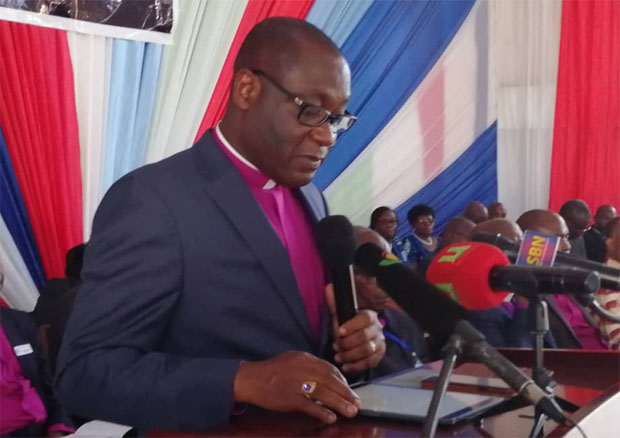[ad_1]

Thirty traditional leaders from three ethnic groups (Dagombas, Konkombas and Fulanis) in the Gushegu Municipality have undergone a three-day capacity building on expanding peacebuilding and dialogue in the Northern Region.
The training was to equip participants to understand the diversity of identities within communities and common attributes among different communities.
They are expected to apply the skills and knowledge acquired through the training to prevent conflicts, manage disputes, and effectively handle violent-related issues in the municipality.
The training was organised by the National Peace Council with funding from USAID, Office of Transitions Initiative (OTI).
Topics treated included community identity, identification of issues relating to community cohesion, effects of violent oppression on identity, understanding and responding to violent extremism, identifying actors and drivers of violent extremism, understanding conflict, conflict, and violence, causes of conflict amongst others.
Mr Yaja Robert Dawuni, Gushegu Municipal Chief Executive, speaking during the training at Gushegu, underscored the importance of peace and commended the National Peace Council for its efforts to let peace prevail in the area.
Mr Dawuni appealed to the chiefs and religious leaders to use the mosques, churches, and other social gatherings to preach peace and social cohesion.
He appealed to the traditional authorities to remain neutral when helping the chiefs resolve conflicts.
Reverend Father Thaddeus Kuusah, Executive Secretary of the Northern Regional Peace Council, who was a resources person, said “It is only when we are able to manage our perception and reduce our prejudice that we can live happily as one.”
He said handling conflict required deeper understanding of the content, issues, and relationships, and advised participants not to rush into judgement when a matter was brought before them, but rather investigate further before drawing conclusion.
Mr Abukari Nuhu, a staff of the Northern Regional Peace Council, who was also resource person, appealed to the Chiefs to monitor the movement of the youth in their communities to reduce crimes in their areas.
Participants unanimously agreed that all corridors leading to water sources be protected and defined and to proactively prevent conflict and manage disputes in their various communities.
DISCLAIMER: The Views, Comments, Opinions, Contributions and Statements made by Readers and Contributors on this platform do not necessarily represent the views or policy of Multimedia Group Limited.
[ad_2]
Source link


